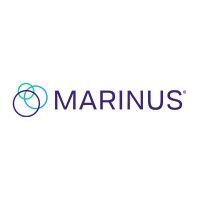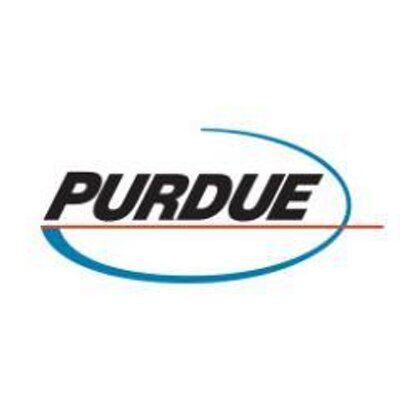预约演示
更新于:2026-01-22
Tenacia Biotechnology (Shanghai) Co. Ltd.
更新于:2026-01-22
概览
标签
神经系统疾病
其他疾病
皮肤和肌肉骨骼疾病
小分子化药
单克隆抗体
siRNA
疾病领域得分
一眼洞穿机构专注的疾病领域
暂无数据
技术平台
公司药物应用最多的技术
暂无数据
靶点
公司最常开发的靶点
暂无数据
| 排名前五的药物类型 | 数量 |
|---|---|
| 小分子化药 | 3 |
| siRNA | 2 |
| 化学药 | 1 |
| 单克隆抗体 | 1 |
关联
7
项与 元羿生物医药(上海)有限公司 相关的药物作用机制 GABAA receptor 正变构调节剂 |
原研机构 |
非在研适应症 |
最高研发阶段批准上市 |
首次获批国家/地区 美国 |
首次获批日期2022-03-18 |
靶点 |
作用机制 KLKB1抑制剂 [+1] |
在研适应症 |
非在研适应症- |
最高研发阶段临床3期 |
首次获批国家/地区- |
首次获批日期- |
靶点 |
作用机制 C1S抑制剂 |
在研适应症 |
非在研适应症- |
最高研发阶段临床3期 |
首次获批国家/地区- |
首次获批日期- |
2
项与 元羿生物医药(上海)有限公司 相关的临床试验CTR20250141
一项关于加那索龙口服混悬剂治疗2岁及以上细胞周期蛋白依赖性激酶5(CDKL5)缺乏症(CDD)中国患者癫痫发作的安全性和有效性的多中心、前瞻性、观察性上市后研究
主要目的
评价加那索龙口服混悬剂用于治疗中国CDD患者癫痫发作的安全性
次要目的
评价加那索龙口服混悬剂用于治疗中国CDD患者癫痫发作的有效性
开始日期2025-04-22 |
申办/合作机构 |
CTR20244472
一项在特发性震颤成人患者中评价Ulixacaltamide有效性和安全性的随机、双盲、安慰剂对照和长期安全性III期研究
本试验是一项由两个研究阶段组成的 III 期临床试验,旨在比较 ulixacaltamide 与安慰剂在18至85岁诊断为ET的受试者中的疗效和安全性。研究阶段1的主要目的是评估治疗12周(84 天)后ulixacaltamide与安慰剂相比 mADL11评分相对于基线的变化。阶段1中的其他疗效评估包括临床总体印象-严重程度(CGI-S)、患者对严重程度的总体印象(PGI-S)、患者对病情变化的总体印象 (PGI-C) 和阿基米德螺旋图。研究阶段2的主要目的是评估 ulixacaltamide 治疗 40 周的长期安全性(研究阶段1和阶段2共计给药约1年)。将在研究两个阶段对Ulixacaltamide的安全性和耐受性进行评估。
开始日期- |
申办/合作机构 |
100 项与 元羿生物医药(上海)有限公司 相关的临床结果
登录后查看更多信息
0 项与 元羿生物医药(上海)有限公司 相关的专利(医药)
登录后查看更多信息
74
项与 元羿生物医药(上海)有限公司 相关的新闻(医药)2026-01-03
1月2日,英矽智能宣布与海正药业合作项目在8个月内产生首个临床前候选药物(PCC),这是公司Pharma.AI平台又一快速验证案例。
2025年4月双方启动合作,利用英矽智能生成式AI平台Pharma.AI针对特定靶点和适应症进行早期药物发现;英矽智能负责早期研究并生成临床前数据,海正药业认可后负责IND申报及后续临床开发。
英矽智能自2021年起提名超20个临床前候选药物,10个获IND批准,2个最先进项目完成首个人体试验;内部项目平均12-18个月提名PCC,远快于传统2.5-4年。
英矽智能(Insilico Medicine)宣布,其与海正药业的合作已取得首个临床前候选药物。就在几天前,这家AI药物研发公司刚刚在香港联交所上市,该公司称此次IPO是2025年港股规模最大的生物科技IPO。
双方于去年4月启动合作,旨在利用Insilico的生成式AI(genAI)平台Pharma.AI,推进针对特定靶点和适应症的AI驱动药物研发。在过去的八个月里,Insilico主导了早期研究,生成了符合双方共同制定的临床前候选药物标准的临床前数据,并获得了海正药业的认可。接下来,海正药业将开展IND申请所需的各项研究,并负责后续的临床开发。
英矽智能联合首席执行官兼首席科学官任峰表示:“快速推进候选药物提名是AI如何驱动早期药物研发创新的又一生动例证。该联合项目聚焦于一个相对较新的靶点,并致力于解决一个存在巨大未满足医疗需求的疾病领域。”
Pharma.AI 结合AI和多组学分析,用于靶点发现和优先级排序,识别并评估与疾病相关的生物靶点。该平台还整合了多个生成式化学引擎,用于设计具有所需特性的新型分子结构,以及由大型语言模型和专业研究助手驱动的预测建模。
“借助我们的Pharma.AI平台,我们可以在更短的时间内系统地探索广泛的生物和化学领域,为患者带来更多创新治疗方案,并进一步增强我们对人工智能赋能药物研发潜力的信心,”任峰表示。
去年,英矽智能与多家制药合作伙伴展开合作,包括太景生物科技、Atossa Therapeutics、礼来、Prelude Therapeutics、Tenacia Biotechnology、Therasid Bioscience、和铂医药、Menarini Group等。自2021年以来,该公司已提名超过20个在研和临床前候选药物,10个分子获得IND批准,并完成了两个进展最快的候选药物的首次人体试验。
去年2月发布的临床前药物发现基准数据显示, 英矽智能的大多数内部项目在 12 到 18 个月内就达到了候选药物提名阶段,同时每个项目合成和测试了 60 到 200 个分子。而相比之下,传统的早期药物发现需要两年半到四年时间。
IPO临床申请
2026-01-02
Insilico Medicine announced Friday that its collaboration with Hisun Pharmaceutical has yielded its first preclinical candidate, just days after the AI drug developer made its debut on the Hong Kong Stock Exchange in what the company said was the city's largest biotech IPO of 2025.The pair launched their partnership last April to leverage Insilico's generative AI (genAI) platform, Pharma.AI, to advance AI-driven drug discovery for selected targets and indications. Over the past eight months, Insilico led early-stage research, generating preclinical data that satisfied jointly defined preclinical candidate criteria and received Hisun's endorsement. Hisun will next conduct the studies required for IND applications and oversee subsequent clinical development.The rapid progression to candidate nomination is "another vivid example of how AI can drive innovation in early-stage drug research," said Feng Ren, co-CEO and chief scientific officer of Insilico. "The joint programme focuses on a relatively novel target and addresses a disease area with substantial unmet medical needs." Pharma.AI combines AI and multi-omics analysis for target discovery and prioritisation, identifying and ranking disease-relevant biological targets. The platform also incorporates multiple generative chemistry engines to design novel molecular structures with desired properties, as well as predictive modelling powered by large language models and specialised research assistants."With the support of our Pharma.AI platform, we can systematically explore a broad biological and chemical space in a shorter time frame, bringing more innovative treatment options to patients and further strengthening our confidence in AI's potential to empower drug R&D," said Ren.Insilico collaborated with a string of pharma partners last year, including TaiGen, Atossa Therapeutics, Lilly, Prelude Therapeutics, Tenacia Biotechnology, Therasid Bioscience, Harbour BioMed, Menarini Group and others. Since 2021, the company has nominated more than 20 development and preclinical candidates, received IND clearance for 10 molecules and completed first-in-human trials for its two most advanced candidates.Preclinical drug discovery benchmarks released last February showed that most of Insilico's internal programmes reached candidate nomination within 12 to 18 months — compared with two and a half to four years using traditional early-stage drug discovery — while synthesising and testing between 60 and 200 molecules per programme.
IPO临床申请
2026-01-01
·信狐药迅
本周药品注册受理数据,分门别类呈现,一目了然。(12.22-12.31)
新药上市申请
药品名称
企业
注册分类
受理号
酒石酸凡瑞格拉替尼片
和记黄埔医药(上海)有限公司
1
CXHS2500162
注射用QP-6211
南京清普生物科技有限公司
2.1;2.2
CXHS2500166
人工唾液喷雾剂
深圳南粤药业有限公司
2.2
CXHS2500167
HY22017胶囊
长春海悦药业股份有限公司
2.2
CXHS2500163
BCM894胶囊
海南金瑞宝医药科技有限公司
2.3
CXHS2500161
赛沃替尼片
和记黄埔医药(上海)有限公司
2.4
CXHS2500165
赛沃替尼片
和记黄埔医药(上海)有限公司
2.4
CXHS2500164
莱康奇塔单抗注射液
珠海市丽珠单抗生物技术有限公司
1
CXSS2500144
新药临床申请
药品名称
企业
注册分类
受理号
SYN818片
杭州圣域生物医药科技有限公司
1
CXHL2501523
SYN818片
杭州圣域生物医药科技有限公司
1
CXHL2501522
FY103注射液
北京福元医药股份有限公司
1
CXHL2501517
APG-3288片
苏州亚盛药业有限公司
1
CXHL2501514
APG-3288片
苏州亚盛药业有限公司
1
CXHL2501513
ALK2403片
艾立康(合肥)医药科技有限公司
1
CXHL2501512
ALK2403片
艾立康(合肥)医药科技有限公司
1
CXHL2501511
HSK55879片
上海海思盛诺医药科技有限公司
1
CXHL2501521
HSK55879片
上海海思盛诺医药科技有限公司
1
CXHL2501520
HSK55879片
上海海思盛诺医药科技有限公司
1
CXHL2501519
FB7013注射液
前沿生物药业(南京)股份有限公司
1
CXHL2501518
RC010吸入粉雾剂
南京瑞初医药有限公司
1
CXHL2501526
CS08399片
成都微芯药业有限公司
1
CXHL2501516
CS08399片
成都微芯药业有限公司
1
CXHL2501515
RC017眼膏
南京瑞初医药有限公司
1
CXHL2501535
RC017眼膏
南京瑞初医药有限公司
1
CXHL2501534
RC017眼膏
南京瑞初医药有限公司
1
CXHL2501533
RC010吸入粉雾剂
南京瑞初医药有限公司
1
CXHL2501527
LC-1016注射液
成都心正合医药科技有限公司
1
CXHL2501510
YD6390片
上海壹典医药科技开发有限公司
1
CXHL2501509
YD6390片
上海壹典医药科技开发有限公司
1
CXHL2501508
YD6390片
上海壹典医药科技开发有限公司
1
CXHL2501507
SYH2059吸入粉雾剂
上海翊石医药科技有限公司
1
CXHL2501506
SYH2059吸入粉雾剂
上海翊石医药科技有限公司
1
CXHL2501505
SYH2059吸入粉雾剂
上海翊石医药科技有限公司
1
CXHL2501504
SYH2059吸入粉雾剂
上海翊石医药科技有限公司
1
CXHL2501503
AOB01-0036胶囊
双翼原创(上海)医药有限公司
1
CXHL2501502
AOB01-0036胶囊
双翼原创(上海)医药有限公司
1
CXHL2501501
CX1440胶囊
杭州邦顺制药股份有限公司
1
CXHL2501500
CX1440胶囊
杭州邦顺制药股份有限公司
1
CXHL2501499
ADX-038注射液
元羿生物科技(上海)有限公司
1
CXHL2501498
RAG-01注射液
中美瑞康核酸技术(南通)研究院有限公司
1
CXHL2501497
AOSC冻干粉
海糖(江苏)生物医药科技有限公司
1
CXHL2501496
QY211凝胶
启元生物(杭州)有限公司
1
CXHL2501492
QY211凝胶
启元生物(杭州)有限公司
1
CXHL2501491
IAMA-001凝胶
南京吉盛澳玛生物医药有限公司
1
CXHL2501490
HSK55879片
上海海思盛诺医药科技有限公司
1
CXHL2501489
IAMA-001凝胶
南京吉盛澳玛生物医药有限公司
1
CXHL2501488
注射用TRD221
中国医学科学院药物研究所
1
CXHL2501483
HSK55879片
上海海思盛诺医药科技有限公司
1
CXHL2501487
HSK55879片
上海海思盛诺医药科技有限公司
1
CXHL2501486
GD-20片
天津谷堆生物医药科技有限公司
1
CXHL2501485
GD-20片
天津谷堆生物医药科技有限公司
1
CXHL2501484
HSK50042片
上海海思盛诺医药科技有限公司
1
CXHL2501482
HSK50042片
上海海思盛诺医药科技有限公司
1
CXHL2501481
EGFNASA软膏
宁波艾科索医药科技有限公司
1
CXHL2501480
EGFNASA软膏
宁波艾科索医药科技有限公司
1
CXHL2501479
注射用INV-8989
广东省创新药转化医学研究院有限公司
1
CXHL2501477
注射用GGA-sNIR
广州仕韫生物技术有限公司
1
CXHL2501474
注射用富马酸赛诺拉赞
湖南赛隆药业(长沙)有限公司
1
CXHL2501472
68-218注射液
重庆阿普格雷生物科技有限公司
1
CXHL2501478
SIM0532片
上海先纬医药科技有限公司
1
CXHL2501463
SIM0532片
上海先纬医药科技有限公司
1
CXHL2501462
GRA2405吸入粉雾剂
广州呼吸药物工程技术有限公司
1
CXHL2501461
GRA2405吸入粉雾剂
广州呼吸药物工程技术有限公司
1
CXHL2501460
HLX97片
上海复宏瑞霖生物技术有限公司
1
CXHL2501459
HLX97片
上海复宏瑞霖生物技术有限公司
1
CXHL2501458
ENC0653软膏
轶诺(浙江)药业有限公司
1
CXHL2501457
ENC0653软膏
轶诺(浙江)药业有限公司
1
CXHL2501456
ENC0653软膏
轶诺(浙江)药业有限公司
1
CXHL2501455
ENC0653软膏
轶诺(浙江)药业有限公司
1
CXHL2501454
ENC0653软膏
轶诺(浙江)药业有限公司
1
CXHL2501453
GenSci145片
长春金赛药业有限责任公司
1
CXHL2501452
GenSci145片
长春金赛药业有限责任公司
1
CXHL2501451
GenSci145片
长春金赛药业有限责任公司
1
CXHL2501450
注射用FZ-P001钠
上海复旦张江生物医药股份有限公司
1
CXHL2501449
SG12注射液
思合基因(北京)生物科技有限公司
1
CXHL2501467
RBD5044注射液
瑞博泰克(山东)生物医药科技有限公司
1
CXHL2501448
108MCN鼻喷雾剂
北京硕佰医药科技有限责任公司
1
CXHL2501447
CMS-D008注射液
深圳市康哲生物科技有限公司
1
CXHL2501446
D3S-002片
德昇济医药(无锡)有限公司
1
CXHL2501440
D3S-002片
德昇济医药(无锡)有限公司
1
CXHL2501439
D3S-002片
德昇济医药(无锡)有限公司
1
CXHL2501438
D3S-002片
德昇济医药(无锡)有限公司
1
CXHL2501436
D3S-001胶囊
德昇济医药(无锡)有限公司
1
CXHL2501435
BL0020注射液
上海弼领生物技术有限公司
1
CXHL2501434
INT-210胶囊
宜坤行健生物医药(上海)有限公司
1
CXHL2501433
INT-210胶囊
宜坤行健生物医药(上海)有限公司
1
CXHL2501432
KC1036片
北京康辰药业股份有限公司
1
CXHL2501431
KC1036片
北京康辰药业股份有限公司
1
CXHL2501430
H021肠溶片
江苏柯菲平医药股份有限公司
1
CXHL2501429
RX608片
苏州润新生物科技有限公司
1
CXHL2501445
RX608片
苏州润新生物科技有限公司
1
CXHL2501444
VG081821AC片
浙江春禾医药科技有限公司
1
CXHL2501443
VG081821AC片
浙江春禾医药科技有限公司
1
CXHL2501442
VG081821AC片
浙江春禾医药科技有限公司
1
CXHL2501441
RGT-274-CR胶囊
上海齐鲁锐格医药研发有限公司
1
CXHL2501419
RGT-274-CR胶囊
上海齐鲁锐格医药研发有限公司
1
CXHL2501418
RGT-274-CR胶囊
上海齐鲁锐格医药研发有限公司
1
CXHL2501417
AZD9750
阿斯利康全球研发(中国)有限公司
1
CXHL2501416
AZD9750
阿斯利康全球研发(中国)有限公司
1
CXHL2501415
AZD9750
阿斯利康全球研发(中国)有限公司
1
CXHL2501414
HSK46575片
辽宁海思科制药有限公司
1
CXHL2501422
INT-210胶囊
宜坤行健生物医药(上海)有限公司
1
CXHL2501428
INT-210胶囊
宜坤行健生物医药(上海)有限公司
1
CXHL2501427
H021肠溶片
江苏柯菲平医药股份有限公司
1
CXHL2501426
HSK46575片
辽宁海思科制药有限公司
1
CXHL2501424
HSK46575片
辽宁海思科制药有限公司
1
CXHL2501423
CU-40104搽剂
科笛生物医药(无锡)有限公司
2.2
CXHL2501495
CU-40104搽剂
科笛生物医药(无锡)有限公司
2.2
CXHL2501494
CU-40104搽剂
科笛生物医药(无锡)有限公司
2.2
CXHL2501493
BN114731
山东百诺医药股份有限公司
2.2
CXHL2501473
BN114731
山东百诺医药股份有限公司
2.2
CXHL2501471
BN114731
山东百诺医药股份有限公司
2.2
CXHL2501470
KEM2407透皮贴剂
深圳珐玛易药品科技有限公司
2.2
CXHL2501468
MI151凝胶
南京迈诺威医药科技有限公司
2.2;2.4
CXHL2501476
MI151凝胶
南京迈诺威医药科技有限公司
2.2;2.4
CXHL2501475
海博麦布阿托伐他汀钙片
瀚晖制药有限公司
2.3
CXHL2501524
CGT-8306片
盛世泰科生物医药技术(苏州)股份有限公司
2.3
CXHL2501465
CGT-8306片
盛世泰科生物医药技术(苏州)股份有限公司
2.3
CXHL2501464
HMC0101
华领医药技术(上海)有限公司
2.3
CXHL2501466
BTP4327
江苏诺和必拓新药研发有限公司
2.3
CXHL2501425
盐酸伊立替康脂质体注射液(II)
上海恒瑞医药有限公司
2.4
CXHL2501469
瑞加诺生注射液
江西银涛药业股份有限公司
2.4
CXHL2501437
重组三价轮状病毒亚单位疫苗(大肠埃希菌)
厦门万泰沧海生物技术有限公司
1.2
CXSL2501136
LVRNA015
珠海丽凡达生物技术有限公司
1.2
CXSL2501132
20价肺炎球菌多糖结合疫苗
山东亦度生物技术有限公司北京分公司
3.2
CXSL2501154
LM-168注射液
礼新医药科技(上海)有限公司
1
CXSL2501178
SYS6090注射液
石药集团巨石生物制药有限公司
1
CXSL2501166
治疗用乙型肝炎慢病毒载体注射液
上海劲威生物科技有限公司
1
CXSL2501164
注射用XNW28012
上海信诺维生物医药有限公司
1
CXSL2501173
CG105 CAR-T细胞注射液
赛斯尔擎生物技术(上海)有限公司
1
CXSL2501172
靶向BCMA的嵌合抗原受体T细胞注射液
深圳普瑞金生物药业股份有限公司
1
CXSL2501171
靶向BCMA的嵌合抗原受体T细胞注射液
深圳普瑞金生物药业股份有限公司
1
CXSL2501170
ICG318 CAR-T细胞注射液
杭州艾赛免疫生物医疗有限公司
1
CXSL2501168
LP-003 注射液
天辰生物医药(苏州)股份有限公司
1
CXSL2501167
注射用ALK202
上海安领科生物医药有限公司
1
CXSL2501174
KN5501细胞注射液
深圳恩瑞恺诺生物技术有限公司
1
CXSL2501183
KN5501细胞注射液
深圳恩瑞恺诺生物技术有限公司
1
CXSL2501181
KN5501细胞注射液
深圳恩瑞恺诺生物技术有限公司
1
CXSL2501182
SND002细胞注射液
贵州生诺生物科技有限公司
1
CXSL2501177
LBP-ShC4
上海菌济健康科技有限公司
1
CXSL2501176
LBP-ShC4
上海菌济健康科技有限公司
1
CXSL2501175
IBR854细胞注射液
英百瑞(杭州)生物医药有限公司
1
CXSL2501161
IBR854细胞注射液
英百瑞(杭州)生物医药有限公司
1
CXSL2501162
Pumitamig注射液
百时美施贵宝(中国)投资有限公司
1
CXSL2501160
JY47注射液
杭州九源基因生物医药股份有限公司
1
CXSL2501159
重组抗EGFR人源化单抗注射液
上海复宏汉霖生物技术股份有限公司
1
CXSL2501158
JL19001注射液
杰库(上海)生物医药研究有限公司
1
CXSL2501163
注射用QLS5308
齐鲁制药有限公司
1
CXSL2501169
LQ036雾化液
上海洛启生物医药技术有限公司
1
CXSL2501157
重组L-IFN腺病毒注射液
上海元宋生物技术有限公司
1
CXSL2501156
SV003注射液
上海循曜生物科技有限公司
1
CXSL2501155
注射用AK150
中山康方生物医药有限公司
1
CXSL2501152
BKB020靶向活化型T细胞注射液
本康生物制药(深圳)有限公司
1
CXSL2501151
IBI3028
信达生物医药科技(杭州)有限公司
1
CXSL2501150
注射用ACT100
厦门特宝生物工程股份有限公司
1
CXSL2501149
注射用ACT100
厦门特宝生物工程股份有限公司
1
CXSL2501148
JMB2202注射液
江苏济烨生物制药有限公司
1
CXSL2501147
RC148注射液
荣昌生物制药(烟台)股份有限公司
1
CXSL2501146
GV20-0251注射液
上海寻百会生物技术有限公司
1
CXSL2501145
YHL-2101注射液
上海海路生物技术有限公司
1
CXSL2501144
CG-BM1异体人骨髓间充质干细胞注射液
广州赛隽生物科技有限公司
1
CXSL2501142
DXP-106注射液
珠海丹序生物制药有限公司
1
CXSL2501141
脂肪间充质干细胞注射液
广东赛尔生物科技有限公司
1
CXSL2501140
PM8102注射用冻干制剂
珠海普米斯生物科技有限公司
1
CXSL2501139
JSKN033注射液
江苏康宁杰瑞生物制药有限公司
1
CXSL2501135
注射用HLX316
上海复宏瑞霖生物技术有限公司
1
CXSL2501134
舒西利单抗注射液
中抗生物制药(海口)有限公司
1
CXSL2501143
注射用经应激诱导的间充质干细胞衍生物
达尔文起点(湖北)生物制药有限责任公司
1
CXSL2501153
注射用SG1827
杭州尚健生物技术有限公司
1
CXSL2501133
注射用BG-C477
广州百济神州生物制药有限公司
1
CXSL2501131
HLX3901注射液
上海复宏瑞霖生物技术有限公司
1
CXSL2501130
LYW2402-NS-HK人源基质细胞注射液(三维工艺制备)
辽宁医学诊疗科技研发中心有限公司
1
CXSL2501129
注射用BAT8008
百奥泰生物制药股份有限公司
1
CXSL2501127
ICG366 CAR-T细胞注射液
松鹤免疫生物医疗(深圳)有限公司
1
CXSL2501126
QBR202眼内注射液
寻济生物科技(北京)有限公司
1
CXSL2501125
QBR202眼内注射液
寻济生物科技(北京)有限公司
1
CXSL2501124
SKB575(HBM7575)注射液
四川科伦博泰生物医药股份有限公司
1
CXSL2501137
SHR-3836注射液
上海恒瑞医药有限公司
1
CXSL2501118
SHR-3836注射液
上海恒瑞医药有限公司
1
CXSL2501117
GO321重组溶瘤痘苗病毒注射液
上海锦斯生物技术有限公司
1
CXSL2501123
TQB6457注射液
上海正大天晴医药科技开发有限公司
1
CXSL2501122
注射用VRT106
广州威溶特医药科技有限公司
1
CXSL2501121
注射用BL-B01D1
成都百利多特生物药业有限责任公司
1
CXSL2501111
GK01活菌散
浙江迈亚塔菌检智能科技有限公司
1
CXSL2501110
GC801注射液
北京锦篮基因科技股份有限公司
1
CXSL2501108
JWK001注射液
成都金唯科生物科技有限公司
1
CXSL2501116
注射用BL-B01D1
成都百利多特生物药业有限责任公司
1
CXSL2501115
注射用BL-B01D1
成都百利多特生物药业有限责任公司
1
CXSL2501114
注射用BL-B01D1
成都百利多特生物药业有限责任公司
1
CXSL2501113
注射用BL-B01D1
成都百利多特生物药业有限责任公司
1
CXSL2501112
NT-001注射液
上海奈康生物科技有限公司
1
CXSL2501106
注射用BL-B01D1
成都百利多特生物药业有限责任公司
1
CXSL2501105
注射用BL-B01D1
成都百利多特生物药业有限责任公司
1
CXSL2501104
610细胞注射液
北京卡替医疗技术有限公司
1
CXSL2501103
注射用BL-B01D1
成都百利多特生物药业有限责任公司
1
CXSL2501102
注射用BL-B01D1
成都百利多特生物药业有限责任公司
1
CXSL2501101
注射用LNF2105
山东新时代药业有限公司
1
CXSL2501107
ReT01 ACT 注射液
北京安韦森生物医药有限公司
2.2
CXSL2501165
伊基奥仑赛注射液
南京驯鹿生物医药有限公司
2.2
CXSL2501100
注射用KJ101
上海宝济药业股份有限公司
2.2;2.4
CXSL2501119
注射用BAT1006
百奥泰生物制药股份有限公司
2.4
CXSL2501128
仿制药申请
药品名称
企业
注册分类
受理号
西尼地平片
北京福元医药股份有限公司
3
CYHS2504509
羟苯磺酸钙片
北京康而福药业有限责任公司
3
CYHS2504508
盐酸氯普鲁卡因注射液
南京海纳医药科技股份有限公司
3
CYHS2504506
盐酸氯普鲁卡因注射液
南京海纳医药科技股份有限公司
3
CYHS2504505
硫酸沙丁胺醇口服溶液
南京海纳制药有限公司
3
CYHS2504499
盐酸毛果芸香碱滴眼液
南京正科医药股份有限公司
3
CYHS2504498
碳酸镧颗粒
珠海健福制药有限公司
3
CYHS2504497
琥珀酸亚铁片
山西宝泰药业有限责任公司
3
CYHS2504518
盐酸丙卡特罗吸入溶液
江苏正大清江制药有限公司
3
CYHS2504475
盐酸丙卡特罗吸入溶液
江苏正大清江制药有限公司
3
CYHS2504474
恩替卡韦口服溶液
上海海虹实业(集团)巢湖今辰药业有限公司
3
CYHS2504473
注射用乳糖酸红霉素
苏州二叶制药有限公司
3
CYHS2504472
注射用乳糖酸红霉素
苏州二叶制药有限公司
3
CYHS2504471
利多卡因丙胺卡因气雾剂
江苏柯菲平医药股份有限公司
3
CYHS2504465
托伐普坦口崩片
河北龙海药业有限公司
3
CYHS2504488
间苯三酚口崩片
烟台鲁银药业有限公司
3
CYHS2504486
瑞卢戈利片
江西山香药业有限公司
3
CYHS2504454
琥珀酸亚铁片
江苏润恒制药有限公司
3
CYHS2504452
草酸艾司西酞普兰口服溶液
山东百诺医药股份有限公司
3
CYHS2504440
中性腹膜透析液(碳酸氢盐-G2.5%)
广东科泓药业有限公司
3
CYHS2504407
乙酰半胱氨酸口服液
四川海梦智森生物制药有限公司
3
CYHS2504423
乙酰半胱氨酸口服液
四川海梦智森生物制药有限公司
3
CYHS2504422
乙酰半胱氨酸口服液
四川海梦智森生物制药有限公司
3
CYHS2504421
乙酰半胱氨酸口服液
成都柏腾医药科技有限公司
3
CYHS2504420
西格列汀二甲双胍缓释片
华中药业股份有限公司
3
CYHS2504418
硫酸奈替米星注射液
江苏润恒制药有限公司
3
CYHS2504415
氯雷他定口服液
江西仁齐制药有限公司
3
CYHS2504410
吡格列酮二甲双胍片
新石阳光药业(河北)有限公司
3
CYHS2504409
中性低钙腹膜透析液(碳酸氢盐-G1.5%)
石家庄四药有限公司
3
CYHS2504437
甲磺酸帕珠沙星注射液
湖南金健药业有限责任公司
3
CYHS2504399
甲磺酸帕珠沙星注射液
湖南金健药业有限责任公司
3
CYHS2504398
美沙拉秦缓释颗粒
湖南九典制药股份有限公司
3
CYHS2504391
贝那普利氢氯噻嗪片
安徽佳和药业有限公司
3
CYHS2504390
复方电解质醋酸钠注射液
海韬新药研发(江苏)有限公司
3
CYHS2504389
盐酸多西环素片
浙江益汉制药有限公司
3
CYHS2504388
左羟丙哌嗪口服溶液
华益药业科技(安徽)有限公司
3
CYHS2504387
溴吡斯的明片
四川科瑞德制药股份有限公司
3
CYHS2504383
富马酸依美斯汀缓释胶囊
沐源(安徽)药业有限公司
3
CYHS2504381
富马酸依美斯汀缓释胶囊
沐源(安徽)药业有限公司
3
CYHS2504379
盐酸文拉法辛缓释片
天津力生制药股份有限公司
3
CYHS2504406
无水甜菜碱散剂
北京斯利安药业有限公司
3
CYHS2504363
对乙酰氨基酚布洛芬口服混悬液
华益药业科技(安徽)有限公司
3
CYHS2504357
氟哌啶醇口服溶液
海南斯达制药有限公司
3
CYHS2504360
草酸艾司西酞普兰口服溶液
哈尔滨市康隆药业有限责任公司
3
CYHS2504337
草酸艾司西酞普兰口服溶液
哈尔滨市康隆药业有限责任公司
3
CYHS2504336
草酸艾司西酞普兰口服溶液
哈尔滨市康隆药业有限责任公司
3
CYHS2504335
盐酸维拉帕米注射液
江苏福邦药业有限公司
3
CYHS2504349
利伐沙班口崩片
江西施美药业股份有限公司
3
CYHS2504348
利伐沙班口崩片
江西施美药业股份有限公司
3
CYHS2504347
酮咯酸氨丁三醇片
华东医药(西安)博华制药有限公司
3
CYHS2504346
中性腹膜透析液(碳酸氢盐-G1.5%)
石家庄四药有限公司
3
CYHS2504343
唑尼沙胺片
湖南尚众合生物医药有限公司
3
CYHS2504341
普瑞巴林胶囊
浙江普洛康裕制药有限公司
4
CYHS2504522
普瑞巴林胶囊
浙江普洛康裕制药有限公司
4
CYHS2504521
普瑞巴林胶囊
浙江普洛康裕制药有限公司
4
CYHS2504520
氯吡格雷阿司匹林片
大桐制药(中国)有限责任公司
4
CYHS2504519
二甲硅油乳剂
甘正(海南)生物药业有限公司
4
CYHS2504510
丙酸氟替卡松乳膏
浙江昂利康制药股份有限公司
4
CYHS2504507
吡美莫司乳膏
浙江百代医药科技有限公司
4
CYHS2504504
富马酸比索洛尔片
上海金城素智药业有限公司
4
CYHS2504503
富马酸比索洛尔片
上海金城素智药业有限公司
4
CYHS2504502
依达拉奉右莰醇注射用浓溶液
江苏联环药业股份有限公司
4
CYHS2504501
兰索拉唑肠溶胶囊
石药集团中诺药业(石家庄)有限公司
4
CYHS2504500
依折麦布阿托伐他汀钙片(I)
浙江昂利康制药股份有限公司
4
CYHS2504496
依折麦布阿托伐他汀钙片(II)
浙江昂利康制药股份有限公司
4
CYHS2504495
盐酸索安非托片
翼思生物医药(苏州)有限公司
4
CYHS2504494
瑞舒伐他汀依折麦布片(I)
新乡市常乐制药有限责任公司
4
CYHS2504493
瑞维那新吸入溶液
江西艾施特制药有限公司
4
CYHS2504492
苯磺酸氨氯地平片
浙江华海制药科技有限公司
4
CYHS2504517
西甲硅油乳剂
哈药集团生物工程有限公司
4
CYHS2504516
地塞米松棕榈酸酯注射液
山东齐都药业有限公司
4
CYHS2504515
枸橼酸铋钾片
河北龙海药业有限公司
4
CYHS2504514
乌帕替尼缓释片
江苏万高药业股份有限公司
4
CYHS2504513
依伏卡塞片
南京海融制药有限公司
4
CYHS2504512
依伏卡塞片
南京海融制药有限公司
4
CYHS2504511
艾普拉唑肠溶片
安徽佳和药业有限公司
4
CYHS2504460
氧(液态)
浙江海宏气体股份有限公司
4
CYHS2504459
富马酸伏诺拉生片
广州白云山天心制药股份有限公司
4
CYHS2504458
乌帕替尼缓释片
浙江昂利康制药股份有限公司
4
CYHS2504480
双氯芬酸二乙胺乳胶剂
湖南派格兰药业有限公司
4
CYHS2504479
阿帕他胺片
山西振东制药股份有限公司
4
CYHS2504478
糠酸莫米松乳膏
浙江百代医药科技有限公司
4
CYHS2504477
瑞维那新吸入溶液
江苏万高药业股份有限公司
4
CYHS2504476
丙酸氟替卡松乳膏
浙江百代医药科技有限公司
4
CYHS2504470
丙酸氟替卡松乳膏
浙江百代医药科技有限公司
4
CYHS2504469
酒石酸长春瑞滨注射液
合肥亿帆生物制药有限公司
4
CYHS2504468
洛索洛芬钠贴剂
南京海纳制药有限公司
4
CYHS2504467
洛索洛芬钠贴剂
南京海纳制药有限公司
4
CYHS2504466
二甲硅油乳剂
湖南科伦制药有限公司
4
CYHS2504464
磷酸奥司他韦胶囊
广州白云山医药集团股份有限公司白云山制药总厂
4
CYHS2504463
磷酸奥司他韦胶囊
广州白云山医药集团股份有限公司白云山制药总厂
4
CYHS2504462
氧
浙江海宏气体股份有限公司
4
CYHS2504461
他达拉非片
武汉九珑人福药业有限责任公司
4
CYHS2504491
他达拉非片
武汉九珑人福药业有限责任公司
4
CYHS2504490
他达拉非片
武汉九珑人福药业有限责任公司
4
CYHS2504489
奈妥匹坦帕洛诺司琼胶囊
浙江爱生药业有限公司
4
CYHS2504487
瑞维那新吸入溶液
南京黄龙生物科技有限公司
4
CYHS2504485
雌二醇片/雌二醇地屈孕酮片复合包装
北京金城泰尔制药有限公司
4
CYHS2504484
雌二醇片/雌二醇地屈孕酮片复合包装
北京金城泰尔制药有限公司
4
CYHS2504483
非奈利酮片
四川益生智同医药生物科技发展有限公司
4
CYHS2504482
多替诺雷片
天地恒一制药股份有限公司
4
CYHS2504481
硫酸氨基葡萄糖胶囊
山西华夏泰康医药集团有限公司
4
CYHS2504457
硫酸氨基葡萄糖胶囊
柏士顿(海南)医疗科技有限公司
4
CYHS2504453
沙库巴曲缬沙坦钠片
江西半边天药业有限公司
4
CYHS2504456
沙库巴曲缬沙坦钠片
江西半边天药业有限公司
4
CYHS2504455
西诺氨酯片
四川奥邦古得药业有限公司
4
CYHS2504450
西诺氨酯片
四川奥邦古得药业有限公司
4
CYHS2504449
西诺氨酯片
四川奥邦古得药业有限公司
4
CYHS2504448
富马酸伏诺拉生片
新石阳光药业(河北)有限公司
4
CYHS2504447
富马酸伏诺拉生片
新石阳光药业(河北)有限公司
4
CYHS2504446
比索洛尔氨氯地平片
宏越科技(湖州)有限公司
4
CYHS2504445
溴芬酸钠滴眼液
石家庄格瑞药业有限公司
4
CYHS2504444
溴芬酸钠滴眼液
石家庄格瑞药业有限公司
4
CYHS2504443
乌帕替尼缓释片
山东百诺医药股份有限公司
4
CYHS2504441
盐酸曲唑酮缓释片
九华华源药业(桂林)有限公司
4
CYHS2504439
克立硼罗软膏
国药集团三益药业(芜湖)有限公司
4
CYHS2504438
布瑞哌唑片
海南通用三洋药业有限公司
4
CYHS2504431
醋酸锌片
北京远方通达医药技术有限公司
4
CYHS2504429
醋酸锌片
北京远方通达医药技术有限公司
4
CYHS2504428
克林霉素磷酸酯过氧苯甲酰凝胶
北京诺博特生物科技有限公司
4
CYHS2504427
左乙拉西坦片
武汉人福药业有限责任公司
4
CYHS2504426
苯磺酸左氨氯地平片
重庆药友制药有限责任公司
4
CYHS2504425
苯磺酸左氨氯地平片
重庆药友制药有限责任公司
4
CYHS2504424
复方聚乙二醇电解质散(III)
天津梅花生物医药科技有限公司
4
CYHS2504419
二甲双胍恩格列净片(Ⅰ)
湖南华纳大药厂股份有限公司
4
CYHS2504417
复方甘草酸苷片
广东粤和泽药物研究有限公司
4
CYHS2504416
左卡尼汀口服溶液
锦州本天药业有限公司
4
CYHS2504414
左氧氟沙星片
力品药业(厦门)股份有限公司
4
CYHS2504413
蒙脱石混悬液
山东现代医药科技有限公司
4
CYHS2504412
克立硼罗软膏
江苏东科康德药业有限公司
4
CYHS2504411
玛巴洛沙韦片
江苏德源药业股份有限公司
4
CYHS2504408
腹膜透析液(乳酸盐-G2.5%)
广东科泓药业有限公司
4
CYHS2504436
达格列净片
双鹤天安药业(贵州)股份有限公司
4
CYHS2504435
达格列净片
双鹤天安药业(贵州)股份有限公司
4
CYHS2504434
乌帕替尼缓释片
江苏和晨药业有限公司
4
CYHS2504433
布瑞哌唑片
海南通用三洋药业有限公司
4
CYHS2504432
布瑞哌唑片
海南通用三洋药业有限公司
4
CYHS2504430
非奈利酮片
南通联亚药业股份有限公司
4
CYHS2504451
乌帕替尼缓释片
齐鲁制药(海南)有限公司
4
CYHS2504442
吡仑帕奈片
山东新华制药股份有限公司
4
CYHS2504405
吡仑帕奈片
山东新华制药股份有限公司
4
CYHS2504404
盐酸奥洛他定滴眼液
山东辰欣佛都药业股份有限公司
4
CYHS2504403
瑞维那新吸入溶液
仁合益康汇泽药业河北有限公司
4
CYHS2504402
玛巴洛沙韦片
重庆莱美药业股份有限公司
4
CYHS2504401
乙酰半胱氨酸注射液
江苏润邦药业有限公司
4
CYHS2504400
布瑞哌唑片
湖南省湘中制药有限公司
4
CYHS2504397
布瑞哌唑片
湖南省湘中制药有限公司
4
CYHS2504396
美阿沙坦钾片
重庆世森医药科技有限公司
4
CYHS2504395
美阿沙坦钾片
重庆世森医药科技有限公司
4
CYHS2504394
氢溴酸伏硫西汀片
云鹏医药集团有限公司
4
CYHS2504393
替普瑞酮胶囊
哈药集团制药六厂
4
CYHS2504392
地屈孕酮片
浙江神洲药业有限公司
4
CYHS2504386
达格列净片
云鹏医药集团有限公司
4
CYHS2504385
双氯芬酸二乙胺乳胶剂
广东君康药业有限公司
4
CYHS2504384
依折麦布阿托伐他汀钙片(II)
成都康泰源医药科技有限责任公司
4
CYHS2504382
氨氯地平阿托伐他汀钙片
裕松源药业有限公司
4
CYHS2504380
硫酸氨基葡萄糖胶囊
海南皇隆制药股份有限公司
4
CYHS2504373
蛋白琥珀酸铁口服溶液
重庆科瑞南海制药有限责任公司
4
CYHS2504372
艾普拉唑肠溶片
海南广升誉制药有限公司
4
CYHS2504371
氢溴酸伏硫西汀片
马应龙药业集团股份有限公司
4
CYHS2504370
氢溴酸伏硫西汀片
马应龙药业集团股份有限公司
4
CYHS2504369
乌帕替尼缓释片
辽宁鑫善源药业有限公司
4
CYHS2504368
匹维溴铵片
福建海西新药创制股份有限公司
4
CYHS2504367
达格列净片
山东鲁宁药业有限公司
4
CYHS2504366
达格列净片
山东鲁宁药业有限公司
4
CYHS2504365
苯磺酸美洛加巴林片
珠海同源药业有限公司
4
CYHS2504364
富马酸贝达喹啉片
上海迪赛诺医药集团股份有限公司
4
CYHS2504361
硫酸镁钠钾口服用浓溶液
哈药集团生物工程有限公司
4
CYHS2504378
艾普拉唑肠溶片
哈尔滨松鹤制药有限公司
4
CYHS2504377
西诺氨酯片
重庆莱美药业股份有限公司
4
CYHS2504376
西诺氨酯片
重庆莱美药业股份有限公司
4
CYHS2504375
西诺氨酯片
重庆莱美药业股份有限公司
4
CYHS2504374
乳酸钠林格注射液
浙江都邦药业股份有限公司
4
CYHS2504359
多种微量元素注射液(III)
石家庄四药有限公司
4
CYHS2504358
瑞舒伐他汀钙片
浙江诺得药业有限公司
4
CYHS2504356
佩玛贝特片
浙江花园药业有限公司
4
CYHS2504355
磷酸奥司他韦胶囊
西洲医药科技(浙江)有限公司
4
CYHS2504354
磷酸奥司他韦胶囊
西洲医药科技(浙江)有限公司
4
CYHS2504353
磷酸奥司他韦胶囊
西洲医药科技(浙江)有限公司
4
CYHS2504352
洛索洛芬钠贴剂
内蒙古白医制药股份有限公司
4
CYHS2504351
洛索洛芬钠贴剂
内蒙古白医制药股份有限公司
4
CYHS2504350
夫西地酸乳膏
浙江华海药业股份有限公司
4
CYHS2504362
阿达帕林凝胶
湖北长江瑞益医药科技有限公司
4
CYHS2504340
巴瑞替尼片
海南海灵化学制药有限公司
4
CYHS2504339
巴瑞替尼片
海南海灵化学制药有限公司
4
CYHS2504338
硫酸氨基葡萄糖胶囊
江西铜鼓仁和制药有限公司
4
CYHS2504334
苯磺酸左氨氯地平片
湖南千金湘江药业股份有限公司
4
CYHS2504333
苯磺酸左氨氯地平片
湖南千金湘江药业股份有限公司
4
CYHS2504332
奥氮平片
湖南千金湘江药业股份有限公司
4
CYHS2504345
奥氮平片
湖南千金湘江药业股份有限公司
4
CYHS2504344
培哚普利氨氯地平片(III)
淄博万杰制药有限公司
4
CYHS2504342
重组带状疱疹疫苗(CHO细胞)
江苏瑞科生物技术股份有限公司
3.3
CXSS2500145
人凝血酶原复合物
远大蜀阳生命科学(成都)有限公司
3.4
CXSS2500143
盐酸毛果芸香碱滴眼液
苏州欧康维视生物科技有限公司
3
CYHL2500236
达普司他片
安徽宏业药业有限公司
3
CYHL2500235
达普司他片
安徽宏业药业有限公司
3
CYHL2500234
达普司他片
安徽宏业药业有限公司
3
CYHL2500233
托吡司特片
鲁南贝特制药有限公司
3
CYHL2500232
托吡司特片
鲁南贝特制药有限公司
3
CYHL2500231
奥美拉唑镁/阿莫西林/利福布汀肠溶胶囊
山东齐都药业有限公司
3
CYHL2500229
注射用多黏菌素E甲磺酸钠
河北圣雪大成制药有限责任公司
3
CYHL2500227
氟[18F]妥西吡注射液
杭州亦立医药有限公司
3
CYHL2500226
贝美前列素涂剂
南京正科医药股份有限公司
3
CYHL2500228
茚达格莫吸入粉雾剂(II)
齐鲁安替制药有限公司
4
CYHL2500230
皮下注射人免疫球蛋白
深圳市卫光生物制品股份有限公司
3.2
CXSL2501109
QL2109注射液
齐鲁制药有限公司
3.3
CXSL2501120
进口申请
药品名称
企业
注册分类
受理号
PF-08049820水合物片
Pfizer Inc.
1
JXHL2500400
PF-08049820水合物片
Pfizer Inc.
1
JXHL2500399
NIO752注射液
Novartis Pharma AG
1
JXHL2500398
BHV-8000缓释片
Biohaven Therapeutics, Ltd.
1
JXHL2500406
BHV-8000缓释片
Biohaven Therapeutics, Ltd.
1
JXHL2500405
AMG 436
Amgen Inc.
1
JXHL2500397
AMG 436
Amgen Inc.
1
JXHL2500396
MK-1084片
Merck Sharp & Dohme LLC
1
JXHL2500395
MK-1084片
Merck Sharp & Dohme LLC
1
JXHL2500394
Zorevunersen注射液
Stoke Therapeutics, Inc.
1
JXHL2500393
Zorevunersen注射液
Stoke Therapeutics, Inc.
1
JXHL2500392
DAK539片
Novartis Pharma AG
1
JXHL2500391
DAK539片
Novartis Pharma AG
1
JXHL2500390
AZD5305
AstraZeneca AB
1
JXHL2500389
BMS-986510胶囊
Bristol-Myers Squibb Company
2.4
JXHL2500404
BMS-986510胶囊
Bristol-Myers Squibb Company
2.4
JXHL2500403
BMS-986510胶囊
Bristol-Myers Squibb Company
2.4
JXHL2500402
BMS-986510胶囊
Bristol-Myers Squibb Company
2.4
JXHL2500401
注射用MK-1022
Merck Sharp & Dohme LLC
1
JXSL2500250
BCD-261注射液
SPH-BIOCAD(HK)LIMITED
1
JXSL2500249
Frexalimab注射液
Sanofi-Aventis Recherche & Developpement
1
JXSL2500245
注射用MK-2400
Merck Sharp & Dohme LLC
1
JXSL2500244
Nipocalimab注射液
Janssen Research & Development, LLC
2.2
JXSL2500251
MK-3475A注射液
Merck Sharp & Dohme B.V.
2.2
JXSL2500248
MK-3475A注射液
Merck Sharp & Dohme B.V.
2.2
JXSL2500247
伊奈利珠单抗注射液
Amgen Inc.
2.2
JXSL2500246
泰它西普注射液
Vor Biopharma Inc.
2.2;2.1
JXSL2500243
Iberdomide胶囊
Bristol-Myers Squibb Pharma EEIG
1
JXHS2500139
Iberdomide胶囊
Bristol-Myers Squibb Pharma EEIG
1
JXHS2500138
匹妥布替尼片
Eli Lilly Nederland B.V.
2.4
JXHS2500142
匹妥布替尼片
Eli Lilly Nederland B.V.
2.4
JXHS2500141
聚乙二醇3350散
Bayer Healthcare LLC
5.1
JXHS2500140
戈鲁利单抗注射液
Alexion Europe SAS
1
JXSS2500153
戈鲁利单抗注射液
Alexion Europe SAS
1
JXSS2500152
注射用德达博妥单抗
Daiichi Sankyo Europe GmbH
2.2
JXSS2500151
中药相关申请
药品名称
企业
注册分类
受理号
芍药甘草汤颗粒
江中药业股份有限公司
3.1
CXZS2500053
一贯煎颗粒
江中药业股份有限公司
3.1
CXZS2500052
独一味胶囊
江西济民可信药业有限公司
4
CYZS2500010
麻桂退热贴
中国中医科学院中药研究所
1.1
CXZL2500136
九味合欢颗粒
宁波久瑞药业有限公司
1.1
CXZL2500135
KLN01颗粒
南京科领医药科技有限公司
1.1
CXZL2500134
虚汗停颗粒
广州白云山奇星药业有限公司
2.3
CXZL2500133
注:绿色字体部分为潜在首仿品种;
微信关键词回复 ” 每月药讯:回复年+月,如202509” 获得最新药迅!
不包含原料药、医用氧、注射用水、氯化钠或葡萄糖注射液等申请,不包含再注册、一次性进口、技术转移、复审申请。
申请上市临床申请
100 项与 元羿生物医药(上海)有限公司 相关的药物交易
登录后查看更多信息
100 项与 元羿生物医药(上海)有限公司 相关的转化医学
登录后查看更多信息
组织架构
使用我们的机构树数据加速您的研究。
登录
或

管线布局
2026年02月28日管线快照
管线布局中药物为当前组织机构及其子机构作为药物机构进行统计,早期临床1期并入临床1期,临床1/2期并入临床2期,临床2/3期并入临床3期
临床前
1
3
临床申请
临床申请批准
1
1
临床3期
批准上市
1
登录后查看更多信息
当前项目
| 药物(靶点) | 适应症 | 全球最高研发状态 |
|---|---|---|
加那索龙 ( GABAA receptor ) | 癫痫 更多 | 临床3期 |
Claseprubart ( C1S ) | 慢性炎症性脱髓鞘性多发性神经病 更多 | 临床3期 |
盐酸克立咪唑 ( 5-HT receptor x TRPC5 x tPA ) | Dravet综合征 更多 | 临床申请批准 |
盐酸乌利沙胺 ( T-type calcium channel ) | 特发性震颤 更多 | 临床申请 |
NMDA受体调节剂(元羿生物) ( NMDA receptor ) | 抑郁症 更多 | 临床前 |
登录后查看更多信息
药物交易
使用我们的药物交易数据加速您的研究。
登录
或

转化医学
使用我们的转化医学数据加速您的研究。
登录
或

营收
使用 Synapse 探索超过 36 万个组织的财务状况。
登录
或

科研基金(NIH)
访问超过 200 万项资助和基金信息,以提升您的研究之旅。
登录
或

投资
深入了解从初创企业到成熟企业的最新公司投资动态。
登录
或

融资
发掘融资趋势以验证和推进您的投资机会。
登录
或

生物医药百科问答
全新生物医药AI Agent 覆盖科研全链路,让突破性发现快人一步
立即开始免费试用!
智慧芽新药情报库是智慧芽专为生命科学人士构建的基于AI的创新药情报平台,助您全方位提升您的研发与决策效率。
立即开始数据试用!
智慧芽新药库数据也通过智慧芽数据服务平台,以API或者数据包形式对外开放,助您更加充分利用智慧芽新药情报信息。
生物序列数据库
生物药研发创新
免费使用
化学结构数据库
小分子化药研发创新
免费使用




